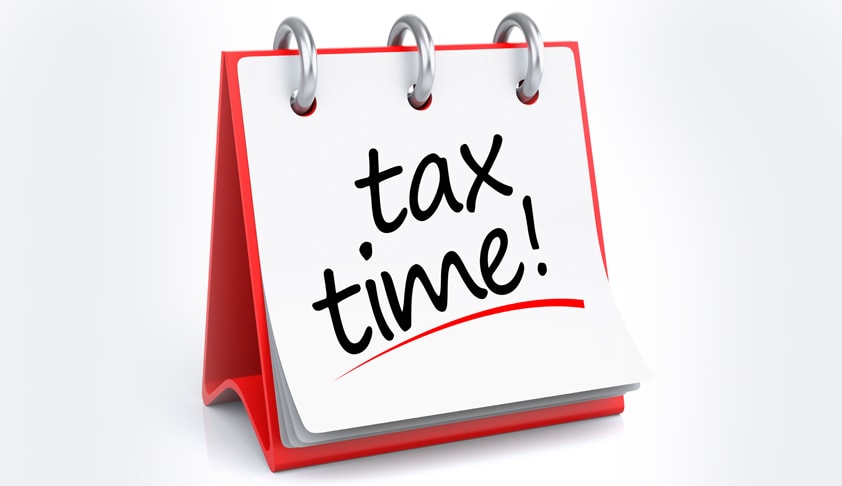Finance ,Insurance, loan ,Stock & Crypto
Tax Implications for Individuals in the US: Freelancing, Side Hustles, and Stock Options Holders In 2024
The Fiscal Maze: Understanding Tax Implications for US Freelancers, Side Hustlers, and Stock Option Holders
The spirit of American ingenuity flourishes in the enterprising endeavors of freelancers, side hustlers, and stock option holders. However, venturing into these pursuits necessitates navigating the complexities of taxation, a realm often shrouded in confusion and uncertainty. This guide aims to demystify the fiscal landscape for these individuals, offering a clear and concise overview of their tax obligations.
Freelancing and Side Hustles: Embracing Self-Employment, Yet Mindful of the Tax Man
- Self-Employment Status: Forgo the traditional employer-employee relationship, but remember, you are now deemed self-employed. This entails additional responsibilities, including paying self-employment tax, which encompasses contributions to both Social Security and Medicare.
- Tax Forms and Filing: Familiarize yourself with Schedule C, a dedicated form where you meticulously detail your self-employment income and expenses for accurate tax filing.
- Deduction Delights: A beacon of relief! You are eligible to deduct legitimate business expenses incurred while freelancing or running your side hustle. This can include office supplies, internet and phone costs, travel expenses, a portion of your home office (with limitations), and even marketing and advertising costs. Meticulous record-keeping is essential to maximize these deductions.
- Estimated Tax Payments: As a self-employed individual, the burden of paying income tax falls solely on your shoulders. To avoid penalties, consider making estimated tax payments quarterly throughout the year, ensuring your tax liability is settled in installments.
Stock Options: Understanding the Taxation Nuances Based on Option Type
- Decoding the Options: The type of stock option you hold, be it an Incentive Stock Option (ISO) or a Non-Qualified Stock Option (NSO), significantly impacts your tax liability. Understanding the distinction is crucial.
- Incentive Stock Options (ISO): While exercising ISOs might not trigger immediate taxation, the fair market value of the stock on the exercise date is added to your wages and taxed as ordinary income. However, if you hold the stock for at least two years after exercising and one year after acquiring the option, you may qualify for favorable capital gains tax treatment when you sell the shares. This incentivizes long-term holding.
- Non-Qualified Stock Options (NSOs): Brace yourself for immediate tax implications. The difference between the exercise price (the price you pay to buy the stock) and the fair market value of the stock when you exercise the option is subject to ordinary income tax. Any further increase in value when you sell the shares is taxed as capital gains.
Beyond the Basics: Important Considerations and Potential Complications
- Double Taxation Concerns: If you work remotely with international clients or hold foreign stock options, be aware that double taxation might apply. This means you could potentially be taxed on the same income in both the US and the foreign country. While tax treaties exist to alleviate this burden, consulting a qualified tax professional is crucial to navigate these intricacies.
- Reporting Requirements: Depending on your specific circumstances, you might be required to report income and assets in both the US and any foreign countries you have conducted business in. Consulting a tax professional can ensure compliance with these reporting obligations.
- Currency Fluctuations: If you earn income or incur expenses in a foreign currency, be mindful of currency fluctuations when translating them for US tax reporting purposes. This can introduce additional complexities and necessitate the expertise of a tax professional.
Advantages on Tax Implications for Individuals in the US: Freelancing, Side Hustles, and Stock Options
While navigating the complexities of taxes can be daunting, engaging in freelancing, side hustles, and stock options can offer several potential advantages in terms of tax implications for individuals in the US. Here's a breakdown of some key benefits:
Freelancing and Side Hustles:
- Self-Employment Tax Deductions: As a self-employed individual, you gain access to a wider range of potential tax deductions compared to traditional employees. This includes business-related expenses like office supplies, equipment, travel costs, and even a portion of your home office (with limitations). These deductions can significantly reduce your taxable income.
- Flexibility in Tax Payments: Unlike traditional employees who have taxes withheld from their paychecks, freelancers and side hustlers have more flexibility in managing their tax payments. While estimated quarterly payments are encouraged, you can manage your cash flow throughout the year and make a single lump sum payment at tax filing time.
- Potential for Lower Overall Tax Rate: Depending on your specific income level and deductions, you might fall into a lower tax bracket compared to traditional employees. This translates to a smaller percentage of your income being taxed, allowing you to retain a larger portion of your earnings.
Stock Options:
- Capital Gains Tax Benefits: Depending on the type of stock option (Incentive Stock Option - ISO), you may qualify for favorable capital gains tax treatment when selling the shares. This means you pay a lower tax rate on the profit earned compared to ordinary income tax rates.
- Potential for Long-Term Wealth Creation: Owning stock options can incentivize long-term holding, which can lead to significant wealth creation through stock appreciation. This can benefit your financial future in the long run.
Important Note:
It's crucial to understand that these are potential advantages, and the specific tax implications for your situation may vary significantly. Consulting with a qualified tax professional is essential to ensure you are maximizing benefits and complying with all tax laws and regulations.
Additional Considerations:
- These advantages should be weighed against potential disadvantages, such as the responsibility of self-employment taxes and the need for more meticulous record-keeping.
- Not everyone qualifies for all the benefits mentioned, and some complexities may arise depending on your specific circumstances.
Remember, seeking professional tax advice is key to navigating the complexities of your specific situation and ensuring you are taking full advantage of any potential tax benefits associated with freelancing, side hustles, and stock options
A Final Word: Seek Professional Guidance for a Smooth Journey
Tax laws are notoriously intricate and subject to frequent changes. While this article provides a general overview, it cannot serve as a substitute for professional tax advice. Consulting a qualified tax professional is paramount for navigating the complexities of taxation and ensuring compliance with the law. They can analyze your specific situation, advise on potential tax-saving strategies, and guide you through the intricacies of filing your tax return accurately and efficiently.
Remember, knowledge is power. By understanding your tax obligations and seeking professional guidance, you can embark on your entrepreneurial ventures with confidence, knowing you are fulfilling your fiscal responsibilities while maximizing your financial potential.
In Conclusion
In the ever-evolving world of work and finance, navigating the tax implications of freelancing, side hustles, and stock options can be a complex but crucial undertaking for individuals in the US. While this journey might seem daunting at first, understanding the key points discussed in this guide can empower you to tackle it with confidence.
Recap of Key Points:
- Freelancers and side hustlers: Embrace their freedom while remembering self-employment tax, Schedule C filing, potential deductions, and estimated tax payments.
- Stock option holders: Understand the significant impact of option type (ISO or NSO) on taxation and potential capital gains benefits.
- Double taxation concerns and reporting requirements: Seek professional guidance if working internationally or holding foreign assets.
- Constant evolution and complexities: Embrace professional advice from qualified tax professionals to navigate the ever-changing tax landscape and ensure compliance.
Remember:
Knowledge is power. By familiarizing yourself with the fundamentals of your tax obligations and seeking professional guidance when needed, you can embark on your entrepreneurial endeavors with a clear understanding of your financial responsibilities and maximize your potential for success.
Writer
Devraj Gorai


























